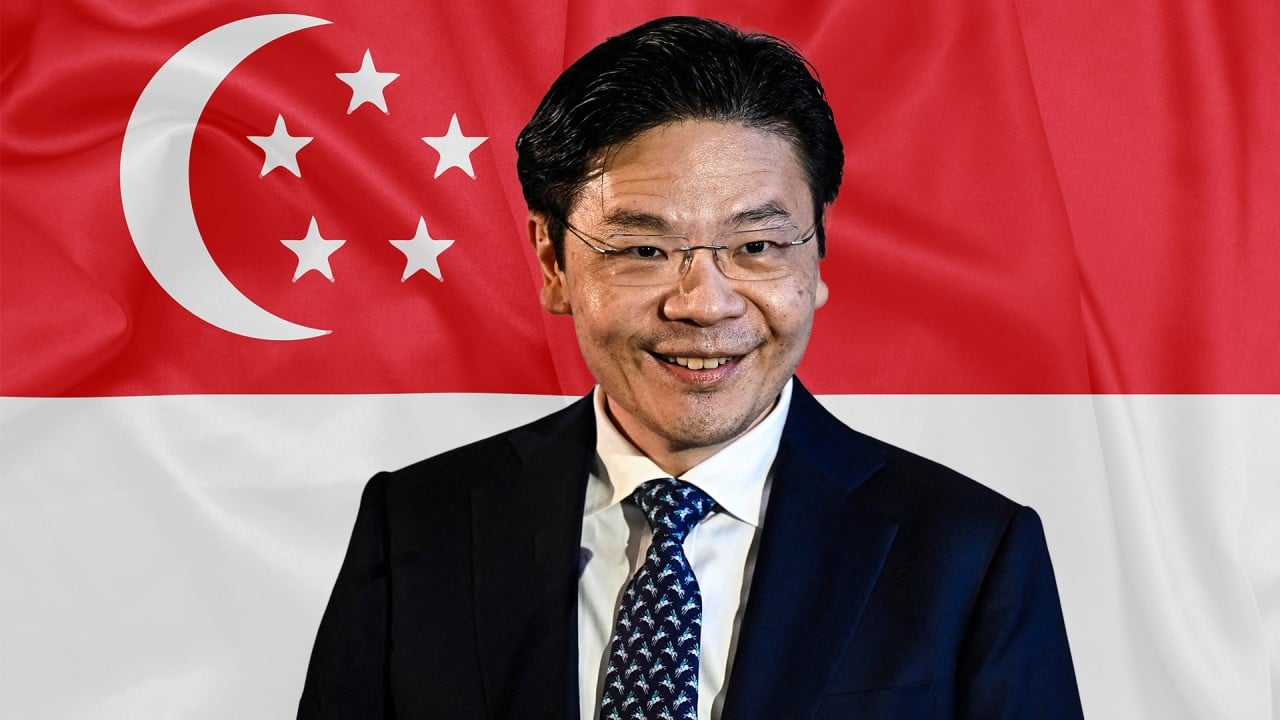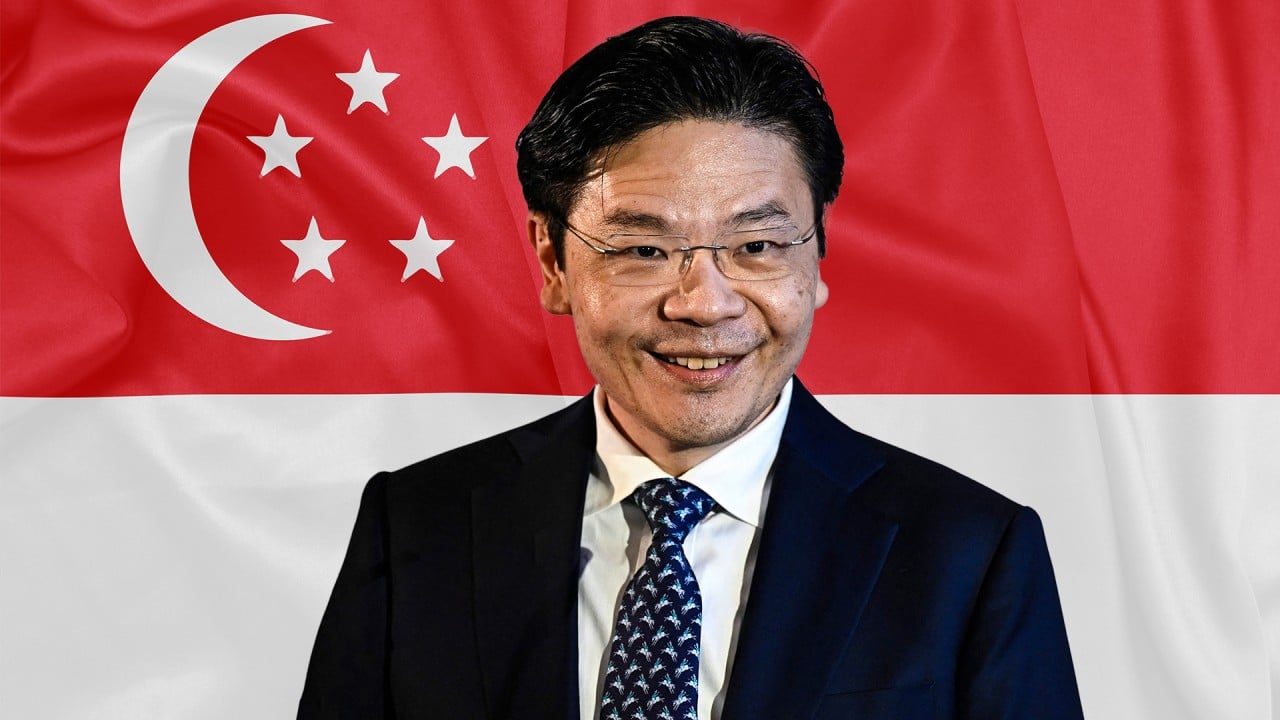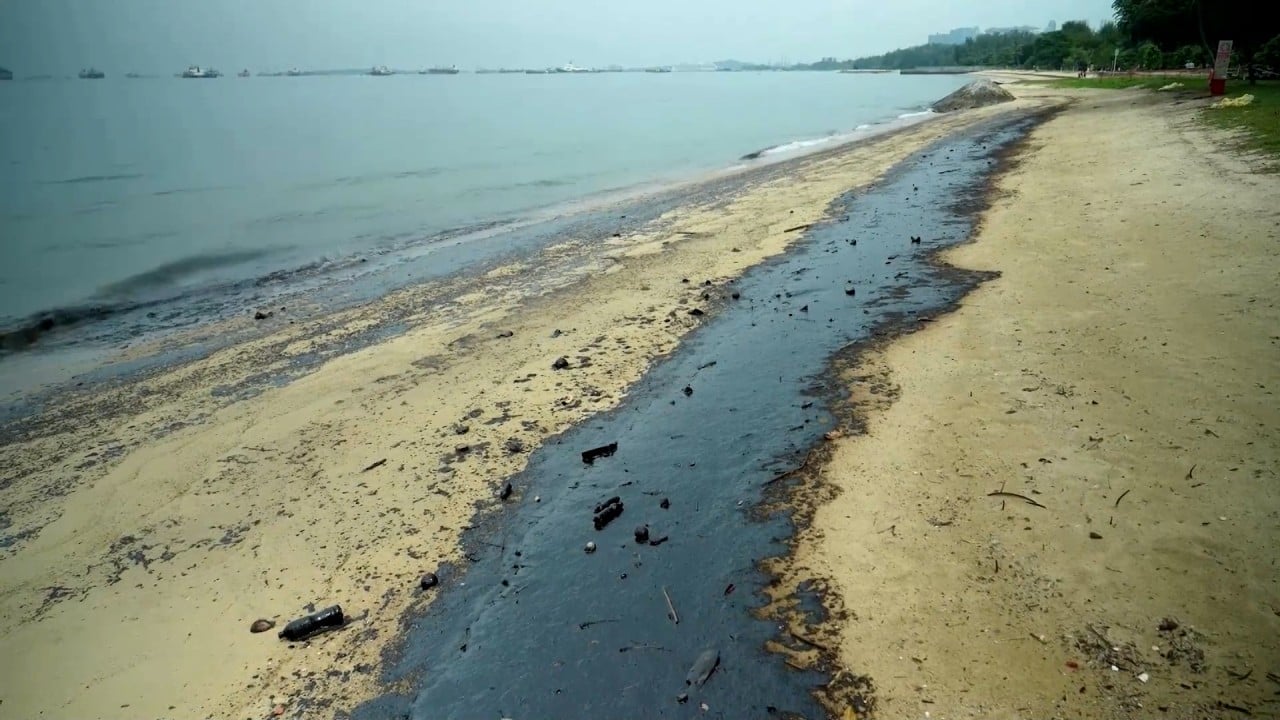When world-class aquatic athletes descend on Singapore next year for the so-called “World Cup of swimming”, some of them will be competing in a pool built in a car park in front of a shopping centre.
While the initial plan was to hold the prestigious World Aquatics Championship (WAC) in Singapore’s 55,000-seat National Stadium, sources told This Week in Asia some swimming events had to be relocated as costs were underestimated in the initial bid.
From July 11 to August 3 next year, Singapore will host the WAC – the top global competition for swimming, diving, water polo, artistic swimming, open water swimming, and high diving. Over 2,500 athletes from 209 national member federations are expected to compete.
Organisers said in February last year that feasibility reports were being done to assess how pools could be built in the National Stadium and in January this year said plans were under way to hold the swimming and artistic swimming competitions in the 12,000-seater Singapore Indoor Stadium.
International media outlets also reported last February that World Aquatics, the international organisation for aquatic sports, said the National Stadium’s capacity would be about 15,000 for the championship’s swimming events.
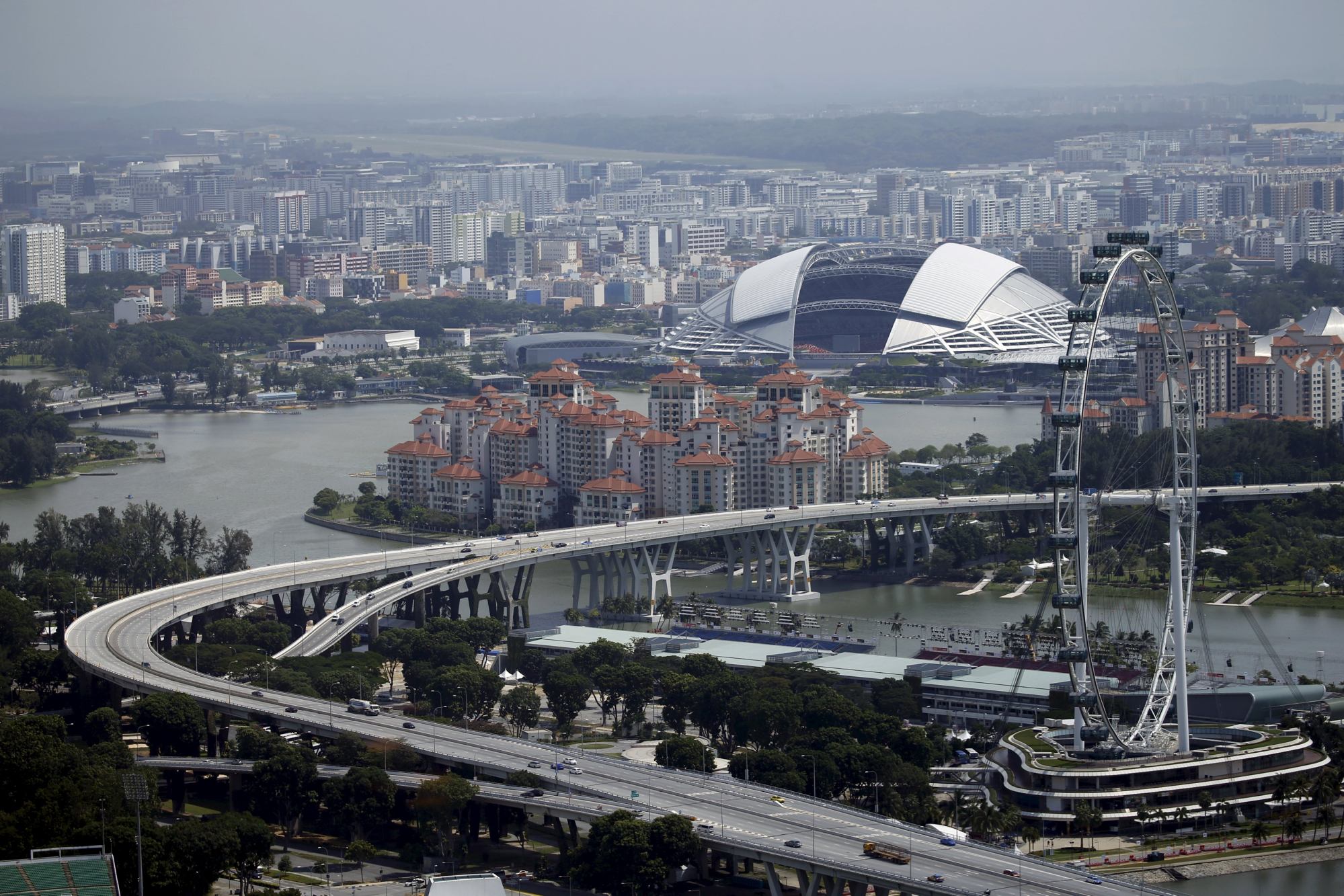
But the local organising committee on Friday announced that the swimming and artistic swimming competitions would be held in temporary pools to be built in the 2-hectare car park at shopping centre Leisure Park Kallang. About 2.06 million gallons of water will fill the pools, and the 4,800-seater venue will be sheltered.
Speaking to the media at the OCBC Aquatic Centre, co-chair of the local organising committee Mark Chay said plans to use the stadiums were “in flux at the time”.
“It sounds very exciting but we have to look at the availability of the venue, the suitability of the venue, and what the requirements are,” he said. “The local organising committee said that the best way to do this in the most prudent and economic way is to build a new venue.”
Alan Goh, Chay’s co-chair and chief executive of Sport Singapore (SportSG), said other events like concerts may also use the stadiums. For the indoor stadium, he said, the pool’s minimum depth would have had to be raised and reinforcing would have been required to handle the pool’s weight.
“When we finally assessed the amount that was needed to go in to make that a verifiable venue, compared to building (one) from scratch in an open space … We chose the one in the car park,” said Goh, who said he could not provide the cost of holding the championships as it was still being finalised.
Aside from the car park, the OCBC Aquatic Centre will be used for water polo and diving, while Palawan beach in Sentosa will house high diving and open water swimming.
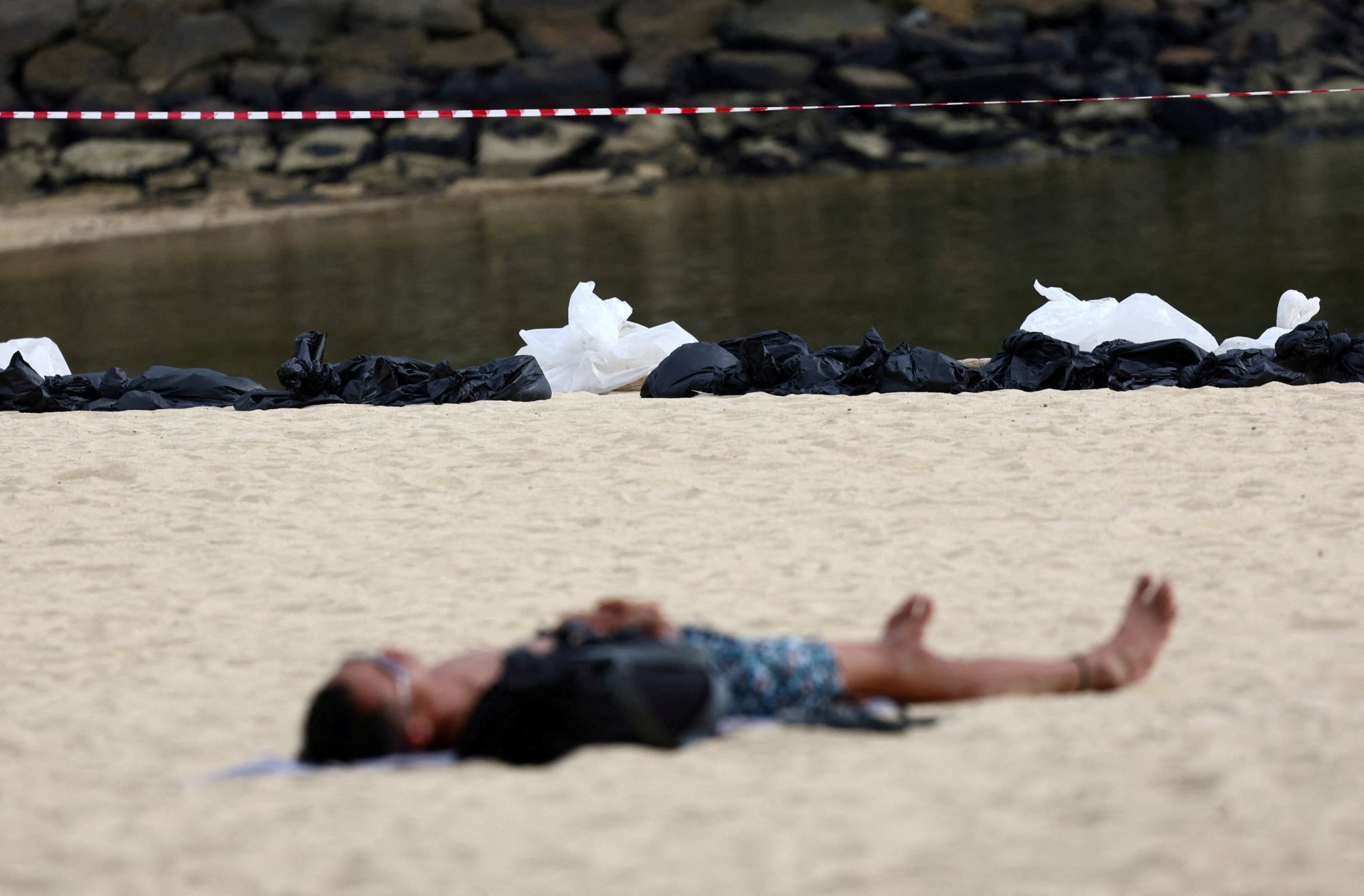
Sources familiar with the preparation of the championships told This Week in Asia last month that the initial plan to use the National Stadium, widely regarded as the centrepiece of Singapore’s S$1.33 billion (US$991.4 million) Sports Hub, “was quickly realised” to have been misestimated.
“They budgeted for it in double-digit millions but it’s actually in triple-digit millions,” said a source who requested anonymity.
“This is bigger than the Youth Olympic Games. This is the Olympics level of aquatics. It’s a great event but is Singapore ready for this? This is the Michael Phelps level of competition.”
Singapore held the first Youth Olympic Games in 2010, allocating S$104 million but eventual costs ballooned to S$387 million, prompting the government to admit to an underestimation.
While organisers did not reveal how much the government allocated to hosting the swimming championships, another source estimated that the cost would exceed US$100 million.
Mexico was chosen in 2011 to host the 2017 championships but in 2015 gave up its hosting rights over financial reasons. News outlets reported at the time that organising the event involved an investment of some US$100 million.
Organisers of Singapore’s event had sought to “deconflict” the use of the National Stadium with other events to celebrate Singapore’s 60th year of independence next year, said Amy Chong, director of marketing communications and sponsorship in the local organising committee, who did not elaborate on what other events would be held at the venue.
Hungry for events
It was revealed last February that Singapore would host the championships, making it the first Southeast Asian country to do so. The Russian city of Kazan won the bid in 2019, but was stripped of hosting rights after Russia’s invasion of Ukraine.
Sources said the bid occurred soon after SportsSG took over management of the Sports Hub from the private sector and was “hungry for events”.
A source said that organisers were also looking for a major sporting event to host in conjunction with Singapore’s 60th year of independence, similar to the 2015 Southeast Asian Games held in the city state to celebrate its 50th birthday.
SportSG took over the 35-hectare venue on December 9, 2022. A year later, the hub saw a 30 per cent increase in sports, entertainment and lifestyle events compared to pre-pandemic 2019. This year, it has held sold-out concerts by international performers including Taylor Swift, Coldplay and Bruno Mars.
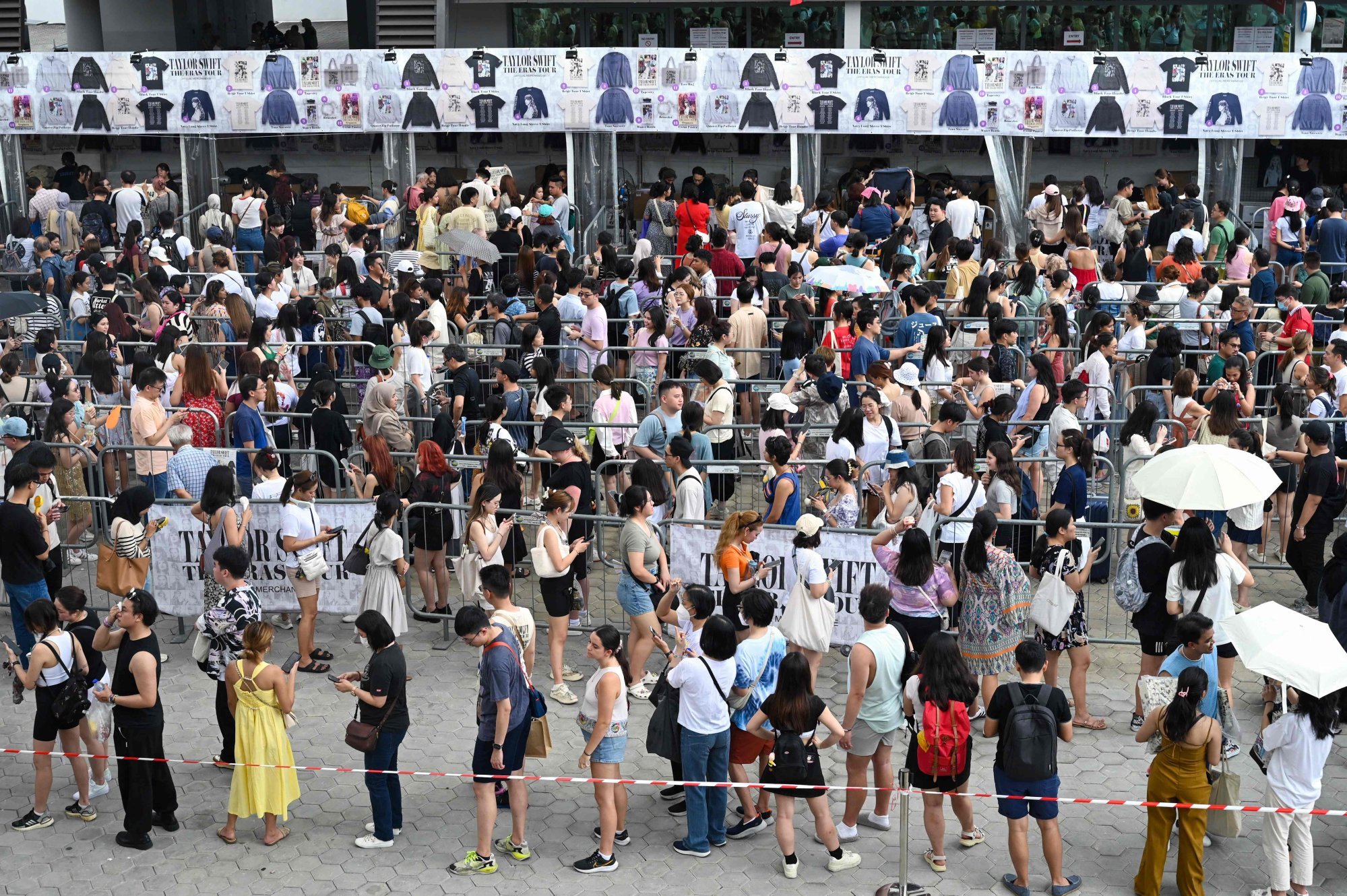
The government has also invested in making Singapore a choice destination for sports and entertainment, unveiling in March a S$165 million fund for major sporting events over four years.
“Some parts” of the fund went to the World Aquatics Championships, Chong said.
Taking over as host city just over two years before the championships has shortened the timeline for local organisers. Most host cities typically are announced six to eight years before the event, with Budapest as the exception when it took over from Mexico in 2015 to organise the 2017 championships.
Chong admitted that the shorter timeline was definitely “not in our favour” but insisted the team would get things together by then.
“We are Singapore, the resilience and the can-do spirit; this is all going to come out through in how we are preparing and chionging ourselves,” added Chong, using the Singapore vernacular for rushing.
World Aquatics told This Week in Asia that it works closely with the Singapore organising committee as venues were “assessed, evaluated and selected”.
Asked if the requirements for seating capacity for each event would be met without the use of the National Stadium, the spokesperson said it has general guidelines and it was working closely with the local organising committee to ensure these are met.
Singapore will buck the trend of hosting major swimming events in large-capacity stadiums. The OCBC Aquatic Centre, located about 1km (0.6 miles) from the car park, can accommodate 3,000 while the Sentosa venue on the southern side of Singapore seats about 600.
Recent hosts Doha held the competition in its 15,500-seater Aspire Dome, while Fukuoka held the event last year in a 15,000-seater venue.
The US held its time trials for the Olympics last month in Lucas Oil Stadium, home of the National Football League’s Indianapolis Colts. The stadium was configured to hold 30,000 spectators and broke the record of 16,000 fans who attended a swimming session at the Rio Olympics in 2016.
Temporary pools have become a common feature for Olympic and World Championship swimming. Myrtha Pools, a partner of World Aquatics, who set up the pools for competitions like the last championships in Fukuoka, Doha and the Paris 2024 Olympics, told This Week in Asia that these pools can be “dismantled after the event and reinstalled in public aquatic centres after the end of competition”.
The temporary pools constructed on the floor of Paris La Défense Arena will be reinstalled in Sevran and Bagnolet after the games while the pools used in Fukuoka were moved to elementary schools in the city.
There are no plans yet to move the pools to other parts of Singapore after the championships, Chong said, but added that organisers plan to test the pools next June.
“We want to make sure we’re not leaving things to chance, we want to have a test event in June next year. It might be a Southeast Asian region event for youth so that’s in the works with Singapore Aquatics and it also allows us to gain a little bit more confidence [hosting] this new event,” she said.


